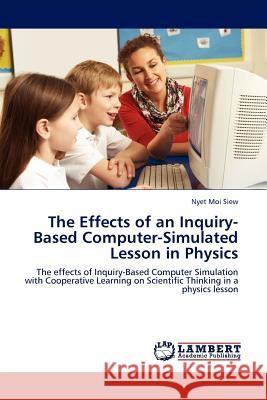The Effects of an Inquiry-Based Computer-Simulated Lesson in Physics » książka
The Effects of an Inquiry-Based Computer-Simulated Lesson in Physics
ISBN-13: 9783845410579 / Angielski / Miękka / 2011 / 288 str.
The book describes how to design a computer-based simulation lesson employing currently available Personal Computer and internet software and investigate its effects in learning situations. The heart of the lesson was the utilitarian Gas Law Simulation program that was incorporated into a hypertext interface display with active links to related notes and worksheets. The simulated lesson allowed students to see the relationships between the variables in graphical forms when a selected independent variable was manipulated and all the corresponding values were keyed into the Excel table. The field testing was conducted using a 3 x 2 factorial design, employing three modes of cooperative learning, namely, heterogeneous-ability cooperative learning group, friendship-based cooperative learning group, and traditional group work group. The sample consisted of 301 16-year-old science students. The findings showed that the inquiry-based computer simulation program was effective in enhancing scientific reasoning and conceptual understanding of students of all reasoning abilities but for maximum effectiveness cooperative learning groups should be composed of students of heterogeneous abilities











